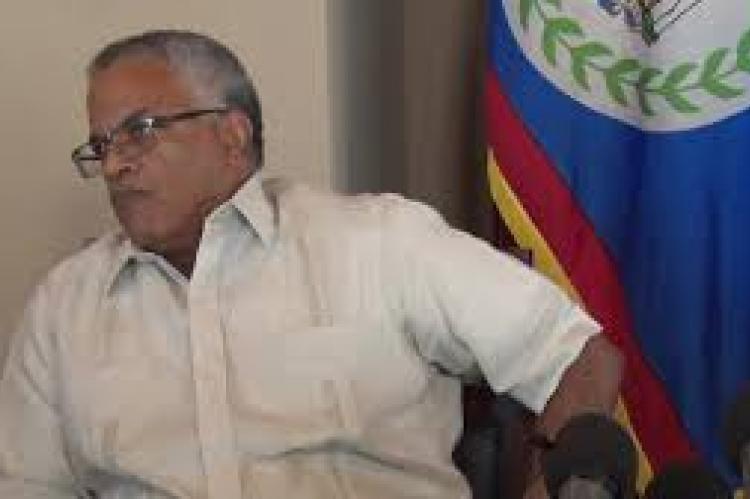UDP Senator Raises Concerns Over Eamon Courtenay's Resignation and Cabinet Privileges
By: Omar Silva, Editor, National Perspective Belize (DIGITAL EDITION)
Belize City: Thursday 21st December 2023
In a surprising turn of events, Senator Eamon Courtenay, a prominent figure within the People's United Party (PUP) and the instrumental legal mind behind Belize's international affairs, recently announced his resignation from the Briceno Administration. Courtenay's departure has raised eyebrows and ignited a debate over the unusual circumstances surrounding his exit and the implications it carries for the government's credibility.
Courtenay, who has served in a high-profile capacity as the Minister of Foreign Affairs and Attorney General, shocked many with his decision to return to private practice after just three years into the Briceno Administration. While such personal career changes are not uncommon, the government's official statement left lingering questions. It was stated that Courtenay would retain "Cabinet privileges," a term that has since fueled speculation and controversy.
The UDP Senator, Michael Peyrefitte, wasted no time in expressing his concerns over this arrangement, suggesting that it may be illegal and in violation of standing orders. He pointed out that Courtenay's simultaneous presence in the Cabinet and the private sector raises significant conflict of interest issues. Furthermore, Peyrefitte questioned the practicality of Courtenay holding Cabinet privileges while not being an active member of the Cabinet or a special advisor with ministerial rank.
Peyrefitte emphasized that if Courtenay wished to leave public service for personal reasons or a return to private practice, it should be a clean departure without retaining government privileges. He also raised concerns about the functioning of the Senate without any ministers, as standing orders dictate that government motions and bills can only be moved by ministers.
A historical comparison was made with Doug Singh, a UDP member who held the position of Leader of Government Business in the Senate from 2008 to 2010 without being a minister. Peyrefitte acknowledged that this precedent was also problematic and should not serve as a basis for the current situation.
While some argue that the government may be trying to soften the blow of Courtenay's departure by allowing him to retain some influence, Peyrefitte countered that Courtenay's exit was likely part of a calculated plan from the beginning. He proposed that Courtenay might return to his ministerial role in the future, further complicating the situation.
The appointment of Francis Fonseca as the new Minister of Foreign Affairs has added another layer to the debate. Peyrefitte questioned how Fonseca, who now has to oversee important international matters, could effectively handle the responsibilities of a position for which he had not been initially designated.
In conclusion, the resignation of Senator Eamon Courtenay has not only cast a spotlight on the intricate workings of the Belizean government but has also sparked discussions on the government's transparency, accountability, and the direction it is taking. The opposition's concerns over potential conflicts of interest and the practicality of the current setup continue to fuel a lively debate among the public, shedding light on the complexities of Belizean politics.
- Log in to post comments

